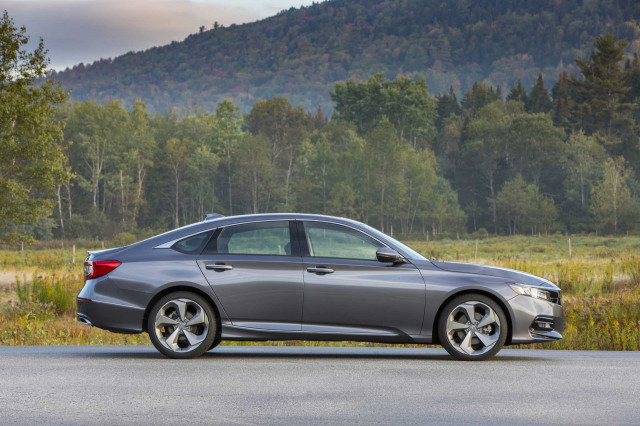Country versus rock ‘n roll. Peanut butter versus jelly. The Mashed Potato versus the Watusi. Rivalries endure based on the respective strengths of each competitor, and the 2020 Toyota Camry vs. 2020 Honda Accord battle is a mid-size sedan showdown for the ages.
Both cars offer outstanding space and value—even more now that crossovers sitting just across the dealers’ lots are more popular.
We’d be happy with either and both offer hybrid options that we don’t include here—although they’re very fuel-efficient. Our sedan Thunderdome has a rule: just one winner.
MORE: Read our 2020 Honda Accord and 2020 Toyota Camry full reviews
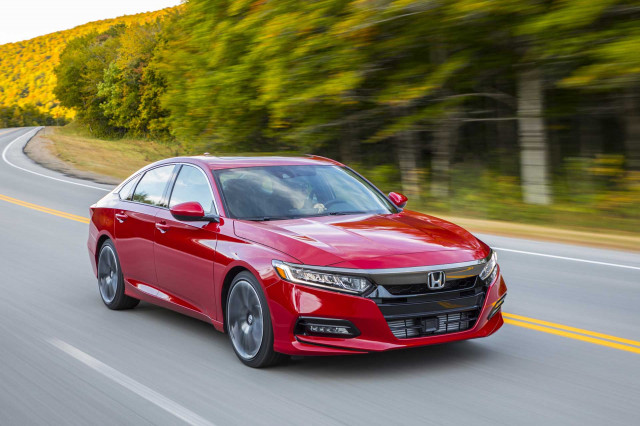
2020 Honda Accord
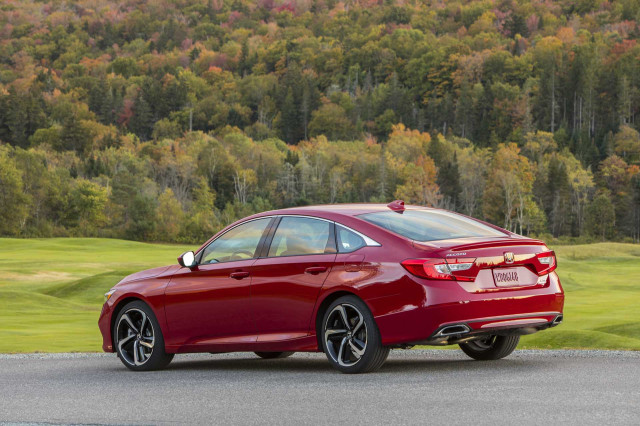
2020 Honda Accord

2020 Honda Accord
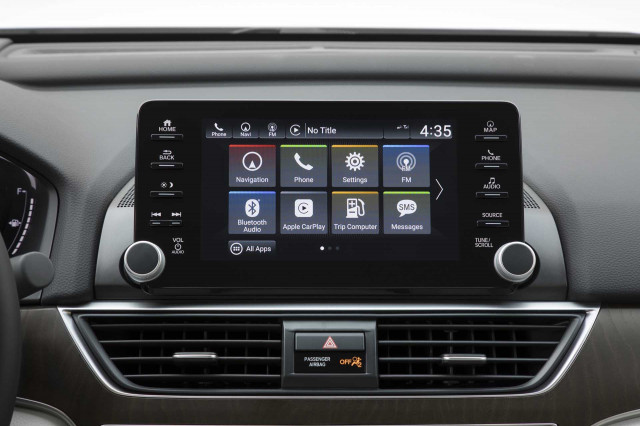
2020 Honda Accord
Both sedans are racier and more outré with styling than their white-bread predecessors. The Honda Accord digs deeply into sister-brand Acura’s playbook for its inspiration. The Accord’s nose is a dead ringer for something Acura would’ve made just a couple of years ago. The thin LED headlights across the nose are just straight larceny. Around the sides, Honda owes royalties to another luxury automaker beginning with the letter A. The sporty roofline and doors look like an Audi A5 Sportback, which is high praise. Inside, the Accord is just as stylish with a broad V-shaped dash and infotainment system that replaced the double-decker weirdness of the outgoing version.
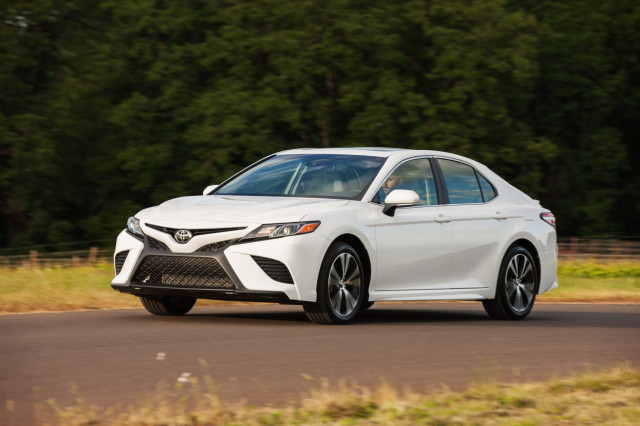
2020 Toyota Camry
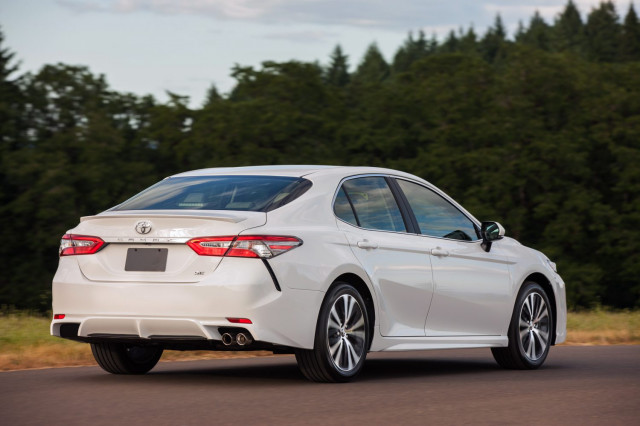
2020 Toyota Camry
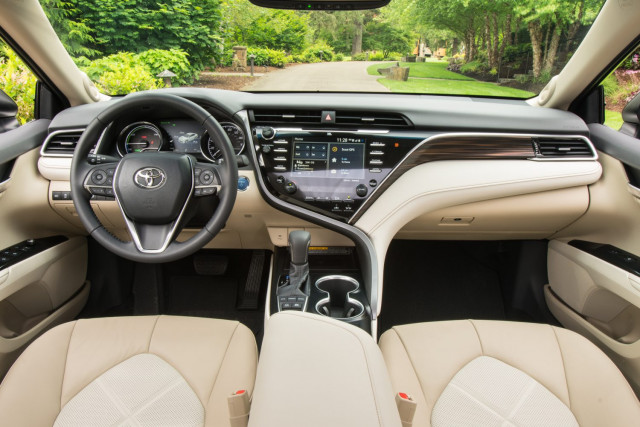
2020 Toyota Camry
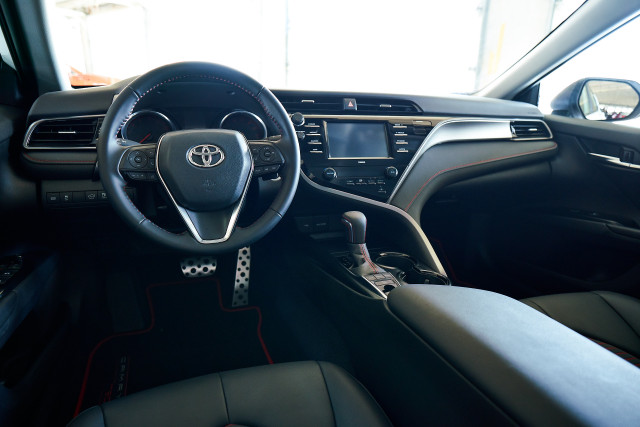
2020 Toyota Camry TRD
The Toyota Camry is just as daring, at least on the outside. There are plenty of right angles, creases, and curves to keep the Camry captivating (and alliterative), but it could be a little too much for some. Inside Toyota tamed the cabin, but the controls now are canted toward the driver. It’s a good look, but relatively bland next to the Accord.
Under the hood, the Accord is powered by one of two turbo-4s. A 1.5-liter turbo-4 is the base engine and it powers the front wheels with 192 horsepower. A continuously variable automatic transmission (CVT) is most common, but a 6-speed manual is available for diehards. A 2.0-liter turbo-4 that makes 252 hp is also available, paired to either a 10-speed automatic or 6-speed manual, that also drives the front wheels. Both provide adequate thrust, but the 1.5-liter is our pick for fuel efficiency and finesse around town. The 2.0-liter is a riot; it’s borrowed from the Civic Type R, after all. By all means, go for it.
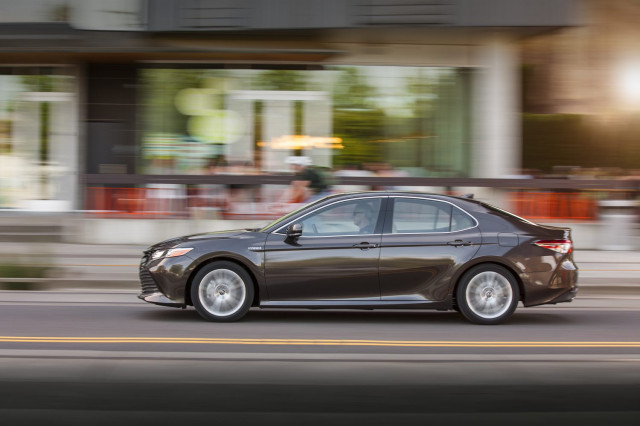
2020 Toyota Camry
The Camry gets a 2.5-liter inline-4 that makes 203 hp sent through an 8-speed automatic that powers the front or all four wheels when optionally equipped. A 3.5-liter V-6 makes 301 hp and sends its power to the front wheels only via an 8-speed automatic. About one in 20 buyers opt for the V-6 for a good reason: the inline-4 is good enough and frugal.
Both sedans return combined mileage in the low 30s, which is excellent for a mid-size sedan. (Hybrids do even better, too.) But the Camry wins out on a smoother ride compared to the Accord.
The Honda pulls ahead in comfort and space, however. The Accord is spacious and quiet, with a bucks-up feeling interior at every trim level. Both sedans offer good leg room, but the Accord’s back seat is better with more daylight and a better rear door opening.
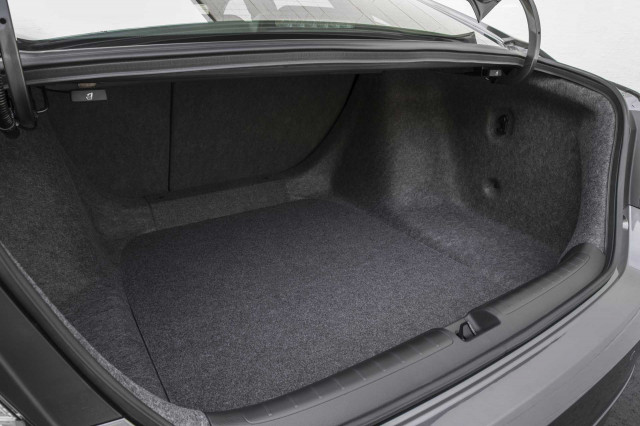
2020 Honda Accord
The Accord also offers a bigger trunk: 16.7 cubic feet vs. 15.1 cubic feet in the Camry.
Both sedans offer virtually perfect safety scorecards and are all equipped with automatic emergency braking, active lane control, and adaptive cruise control—few crossovers offer the same and nearly none at the same price of the Camry and Accord.
That low price should be music to commuters’ ears. The Camry costs $ 25,250 for a base version, the base Accord costs $ 24,800. Our recommended trims, the Camry LE and Accord EX, have a bigger gap: the Camry LE costs $ 25,800 and the Accord EX costs $ 28,700. The Accord EX adds a moonroof and blind-spot monitors that the Camry LE doesn’t offer as standard equipment; comparably equipped, the Camry LE closes the gap and costs $ 560 less than the Accord EX.
Our TCC Rating favors the Accord, however. Its mix of style, safety, and value earns it a 7.0 compared to Camry’s 6.8. It’s a close and long-lasting rivalry, and it’s been that way based on the strength of both sedans.
